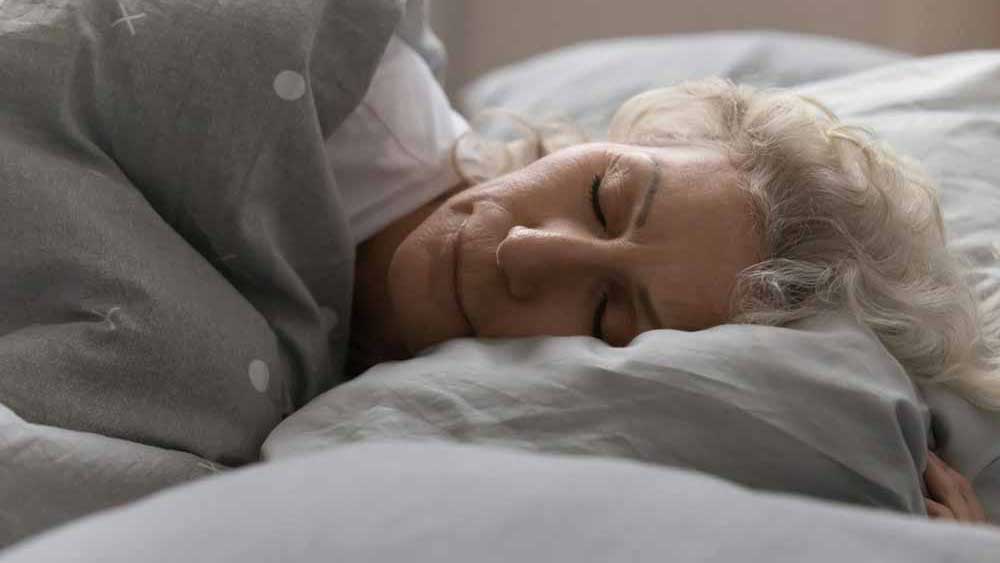

How Sleep Affects Heart Health
For most people in the U.S., daylight saving time resumes this month. The change is bound to turn some people into one of Snow White’s Seven Dwarfs. We see you, Grumpy and Sleepy! Some of us might even feel like Dopey. As Doc might tell you, getting enough sleep—and quality sleep—is important for everyone’s health. It’s good to follow some guidelines even if you’re not dealing with a time change.
How Much Sleep Should I Be Getting?
The recommended amount of sleep for adults varies based on age, lifestyle and individual needs. In general, it is recommended that adults aim for seven to nine hours of sleep per night. For people over the age of 60, the recommended amount of sleep may be slightly lower. According to the National Sleep Foundation, adults over the age of 65 may need seven to eight hours of sleep per night. That’s a general guideline, and individual needs may vary.
As most adults have learned over their lifetime, sleep patterns may change as we age. Older adults may have a harder time falling asleep or staying asleep through the night compared to when they were younger. Or they may have more medical conditions, such as chronic pain, that can interfere with sleep.
The Connections Between Sleep and Heart Health
Sleep patterns don’t just affect our mood and mental sharpness. They affect us physically as well. In fact, there is a strong connection between sleep and heart health. According to the National Heart, Lung, and Blood Institute, people who don’t get quality sleep or enough sleep are at higher risk for developing serious health problems, including heart disease.
A study published in the Journal of the American Heart Association found that “middle-aged adults who had high blood pressure or diabetes and slept less than six hours had twice the increased risk of dying from heart disease or stroke.” It added: “The increased risk of early death for people with high blood pressure or diabetes was negligible if they slept for more than six hours.”
How exactly does sleep affect heart health? One way is through the impact of sleep on stress hormones. During sleep, the body produces less of the stress hormone cortisol, and that can help reduce blood pressure. In addition, sleep helps regulate the activity of the sympathetic nervous system, which is responsible for the body’s “fight or flight” response to stress. When the sympathetic nervous system is active, it can cause an increase in stress hormones, such as adrenaline and noradrenaline. That, in turn, can raise blood pressure and increase the risk of heart disease.
Sleep and Other Risk Factors
Poor sleep habits can also increase the risk of heart disease by contributing to other risk factors, such as high cholesterol and diabetes. For example, a study published in the Journal of the American Medical Association found that people who slept fewer than six hours per night were more likely to have higher blood pressure and higher levels of LDL (“bad”) cholesterol compared to those who slept seven to nine hours per night. Similarly, research has shown that poor sleep can increase the risk of developing diabetes, which is a major risk factor for heart disease.
Sleep Tips to Help Your Heart Health
Once you recover from the daylight saving time change, what else can you do to improve your sleep habits and protect your heart health? Here are some tips from the National Sleep Foundation:
- Stick to a consistent sleep schedule by going to bed and waking up at the same time every day, even on weekends.
- Create a sleep-friendly environment by keeping the bedroom cool, dark and quiet, and using a comfortable mattress and pillows.
- Avoid caffeine, alcohol and heavy meals close to bedtime, as these can disrupt sleep. Alcohol may help some people fall asleep more quickly, but it’s not a healthy long-term solution for sleep problems.
- Relax before bed by reading a book or taking a warm You know the next part: Leave your phone in another room.
- Get regular exercise, but avoid vigorous activity close to
- If you have trouble falling or staying asleep, try relaxation techniques such as deep breathing or meditation.
- Don’t smoke. Nicotine is a stimulant that can make it harder to fall asleep and stay asleep. In addition, smokers may have a harder time falling asleep due to withdrawal symptoms, such as cravings, that can occur during the night.
When To Speak With Your Doctor
Bottom line: Getting enough sleep can have a protective effect on the heart. Adequate sleep can help lower blood pressure, reduce stress hormones and improve overall cardiovascular health. Anyone over the age of 60 should pay attention to their sleep patterns and anything that helps or interferes with sleep. For example, if you suspect that an illness or a medication you are taking is interfering with your sleep, talk to your doctor.
Also talk to your doctor if you have ongoing sleep problems or if you snore loudly and feel tired during the day. These could be signs of a sleep disorder such as sleep apnea, which can be treated with lifestyle changes or medical intervention.
How Right at Home Can Help
As you get older, it may become harder to ensure you are eating right, following doctor’s orders, and taking medications on time. Right at Home offers services that can help monitor symptoms and promote self-care. Right at Home’s trained caregivers can also assist with ambulation, oversee safe movement around the house, and help with meals, errands and light housekeeping. Find a location near you for more information or to request a free in-home consultation.







